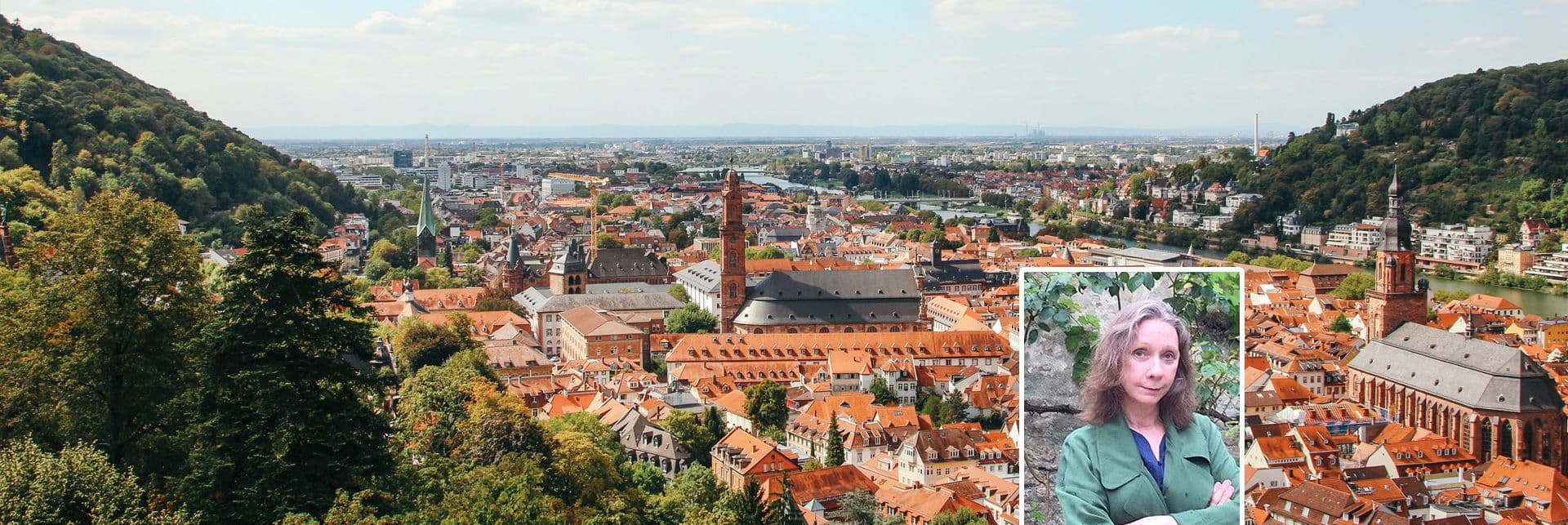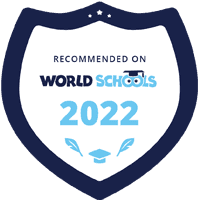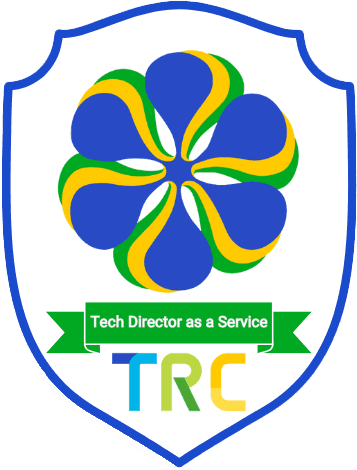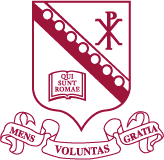
St. Stephen’s alumni/ae are blazing trails and making great strides all over the globe. Our graduates are creating change, influencing trends, and innovating in their respective fields and in the world. The accomplishments our alumni/ae have made in their professional careers are a true testament to the wide range of skills, abilities and talent our former students possess. The Alumni/ae Spotlight series is a tribute to their achievements, and we hope that their stories serve as a source of inspiration to the next generation of graduates as well as all members of our ever-prosperous and growing community. Cortile Guest Contributor and professional screenwriter and filmmaker Arlene Gibbs returns with her most recent interview of author and St. Stephen’s alumna Karen Schur-Narula ‘72, whom you may recall shared an excerpt from her latest book Fatherland in the Spring 2018 issue of The Cortile.
Karen Schur-Narula grew up in South America, North America, Europe, the Middle East, and Asia. She studied at Reed College, Schiller International University, and the École Pratique des Hautes Études. She now lives mainly in Thailand and France. Schur- Narula is the author of Voyage of the Emerald Buddha and Like the Gaze of Statues, an essay in Penelope Rowland’s anthology Paris Was Ours, and many feature stories for international publications. Her first novel, Fatherland, was published in November 2016.
Arlene: Thank you so much, Karen, for agreeing to be interviewed for The Cortile. Our students and faculty have chosen the theme of cultural heritage this year, but before we turn to your fascinating novel, Fatherland, I thought it would be appropriate to start at the beginning.
Where are you from and what brought you to Rome?
Karen: Thank you for the opportunity to be in The Cortile and share a bit about Fatherland!
Like many others at St. Stephen’s, I was a TCK—Third Culture Kid. In 9th grade we were living in the Middle East; my parents let me decide between Switzerland and Rome for the rest of high school. Rome had less snow and more art, so it was an easy choice.
Can you describe your experience at St. Stephen’s? What are some of your fondest memories of that time?
I had remarkable teachers, noteworthy friends, and excellent adventures both at school (Parioli and Via Lungro) and in the city itself. There were awakenings in many dimensions.
After Rome, what came next?
One year at Reed College. Then it was back to Europe: I spent a year in Heidelberg and then finished my university studies in Paris.
What was the inspiration for your first novel, Fatherland?
It might sound odd, but the earliest memory comes from a moment at kindergarten in Saudi Arabia. An older American boy referred to my German-American mother as a ‘natzee’. At home, I asked her what the word meant and she began, of course in very basic terms, to educate me on Germany’s past.
So it was that I became aware of the man who had been the catalyst for so much misery for so many. Over the years I read countless books on Hitler’s Germany, in both English and German.
I couldn’t understand how people had let such horrors happen. Thus, when I worked on Fatherland, I knew I had to try to tell the story from this difficult perspective.
Given my German roots, it was a personal challenge to write it. My mother’s side of the family always lived in Germany, my father’s emigrated when he was a young child. My grandfather felt Hitler would be the ruin of Germany; he was right.
Most of the people that experienced the Nazi era are already gone now, and the conscious reality of it with them. But it is imperative that we continue to learn from the past, especially such a dangerous one. Fiction is an effective way through which to portray history because one can distil it.
You said in a previous interview that when you started Fatherland back in 2004, you believed that the days of belligerent nationalism and deadly racism were behind us. You don’t believe that now. Fourteen years later what changed?
Unfortunately, both had been simmering under the surface. For the past couple years they have been more and more out in the open, in far too many places.
What does cultural heritage mean to you?
That’s a good question, one that I’ve been exploring for decades. It certainly informed the writing of Fatherland, but I don’t believe that cultural heritage comes through blood. Consider the relatively recently established nations that have developed their own cultures!
Cultural heritage is surely a byproduct of people living in different places during different ages. We can absorb and create it through environment and time and love. It is music and the arts, literature, food, language, architecture, science, dress, habit and attitude and more.
What skills sets do you believe are invaluable for writers?
Reading. Listening. Looking. Living. Writing. Rewriting.
What do you consider your greatest achievement so far?
Aside from my role in having raised two wondrous children who are out in the world doing good things, my greatest of achievements so far might be in recognizing the true value of some of the smallest.
Has it been a straight path for you, or do you feel you have you been tested along the way to achieving the goals you’ve set for yourself? Can you talk about what some of those challenges have been and how you’ve surmounted them?
While my path has sometimes been downright meandering, I have generally looked upon the twists and turns as part of the whole. As a writer, I get to use anything that comes along as a possible resource. Grief, inadequacy, fear—they can all be transformed by writing.
What are some of the most important lessons from your professional experience that you would like to share with the next generation of St. Stephen’s graduates?
I certainly recommend going forth with determination toward your goal, toward what you are passionate about—even when it’s a very rough road. But I also believe strongly in sometimes allowing yourself to be taken aside by unexpected interests and developments. Don’t automatically turn away from something that was not part of your initial vision or plan. It may enhance it. It may even set you off in the best direction yet.






